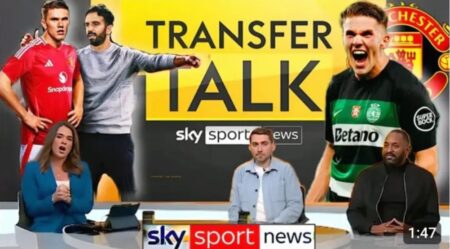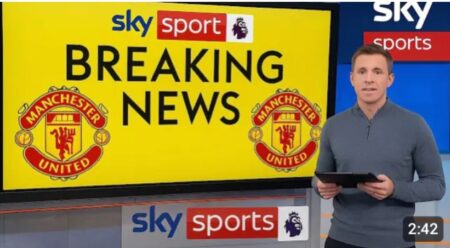Manchester United’s struggles in attack have reached a critical point, highlighted by a lackluster 2-0 loss to West Ham United.
The team’s offensive woes are underscored by discouraging statistics: 13 losses in 24 games, with only 11 wins, emphasizing their ongoing struggles to score. A four-game goal drought further exemplifies their difficulties. Rasmus Hojlund, yet to register a Premier League goal, and Antony’s continued challenges have added to the team’s offensive limitations.
While the defense received praise for resilience against Bayern and Liverpool, the West Ham match revealed the vulnerability of United’s attacking prowess.
The alarming fact that Jarrod Bowen alone scored more goals than the entire United starting XI illustrates the severity of their offensive issues.
While the defensive unit copes admirably with injuries, introducing Willy Kambwala, the attacking front significantly underperforms. Despite most attackers being available, injuries, excluding Jadon Sancho’s self-imposed absence, can no longer justify their lackluster displays.
Erik ten Hag faces a tough situation where attempted solutions, including relying on Scott McTominay, inadvertently create problems.
The absence of midfield creativity and ball retention starves the forwards of opportunities, forcing them to struggle in generating chances independently.
The team’s mentality emerges as a major concern, notably seen in the decline of players like Alejandro Garnacho and Marcus Rashford since signing new contracts.
In this creatively stagnant environment, evaluating a forward’s talent becomes challenging. The attacking crisis, compounded by a lack of innovation, intensifies the scrutiny on Ten Hag. Immediate improvement is crucial, and the failure to do so might raise doubts about Ten Hag’s job security.



